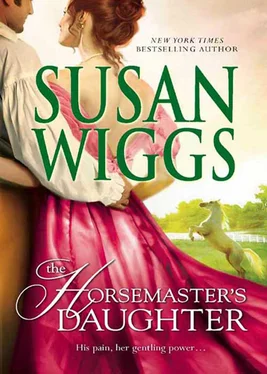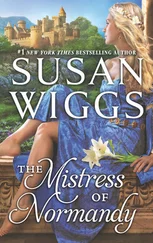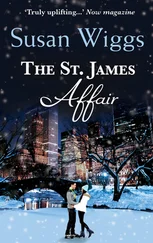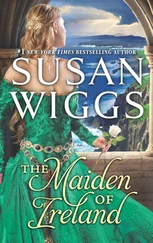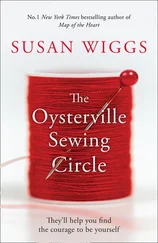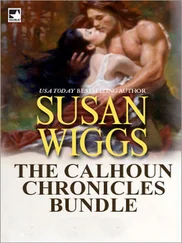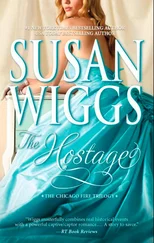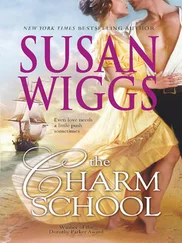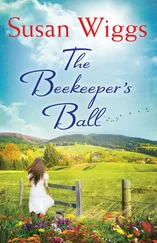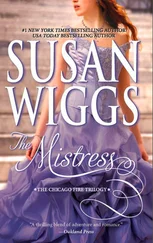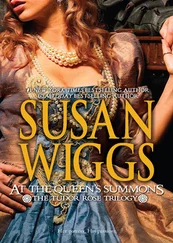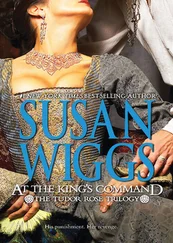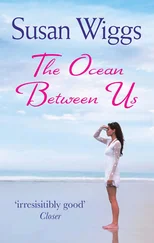Noah took a rolled pamphlet from his hip pocket and shoved it at Hunter. “His name’s listed here in the Farmers’ Register.” He stabbed his finger at an article called “The Horsemaster of Flyte Island.” “Claims he tames wild ponies for riding and farmwork.”
“Why would such a gifted trainer leave Lord Derby’s Thoroughbreds for a herd of wild ponies?”
“I don’t know,” said Noah.
Hunter flipped through the yellowing pages. “This Register is two years old. How do you know the horsemaster is still there?”
“How do you know he’s not?” Noah’s solemn, handsome face was drawn taut with intensity and pleading. “He can save this stallion,” Noah added. “I know it, I do!”
“Son, a miracle wouldn’t save this stallion.” Hunter turned back toward the paddock, angry that he was letting himself be swayed by this earnest, hopeful youth. Earnestness and hope were alien notions to Hunter—for good reason.
“Don’t matter whether you put him down today or wait until tomorrow,” Noah persisted, an edge of anger in his voice. “We got to go see the horsemaster.”
“He’d have a chance to kill again.” Hunter lengthened his strides, thinking of the broodmare, dead because of the crazed stallion’s punishing hooves and wolf-like mouth. He thought of the hired groom slumped against the well house, cradling a crushed hand but thanking God he’d been spared his life. “And what makes you think this horsemaster would come to Albion for the sake of this Thoroughbred?”
Noah hesitated. “They say he won’t travel.”
Hunter let loose with a bark of laughter. “Even better. You’re saying I have to go to him?”
Noah danced ahead in his agitation. “It could be done, sir. I’ve thought and thought on it. You and I can drive the horse into the squeeze and I’ll get him blindfolded and muzzled. Then we’ll get the drover’s scow, the one with the pen. It’s shallow draft. It can dock right here at Albion so we can use the penning chutes, and at high tide it can be poled over to the horsemaster’s island.”
The drover’s scow plied between the low-browed peninsula that reached like a long, stroking finger down the eastern side of Chesapeake Bay and the mainland. Herds of horses, sheep and cattle grew fat on the rich salt grasses of the peninsula and islands, and each season drovers came eastward to pen them and bring them back across the water to market. But the drovers worked with tame livestock, not demonically possessed horses.
“It can work, sir,” Noah said, his voice rising with desperation. “I know it can.”
“Step aside, son,” Hunter said in exasperation. “This is hard enough without you calling up all sorts of false hopes.”
“Shoot him and you’ll have a dead horse for certain. I ain’t digging no grave for him,” Noah said defiantly. “Take him to the horsemaster and you’ll get your champion back. Sir.”
Hunter eyed the horse with its nervously twitching skin, all caked with mud and filth. The agent in Ireland had praised this stallion’s coat and conformation, the depth of his chest and the breathtaking sight of him running at top speed. The horse had, the agent claimed, that elusive quality known as “heart.”
“There’s nothing but madness in this beast,” Hunter said.
“Can you be sure of that?” Noah looked not at him but at the horse. Every muscle in the youth’s compact, slender body was tense, as if he wanted to leap into the paddock and tame the beast himself. “Can you be sure entirely? Look at that beauty.”
“I can be damned sure this horse killed an expensive mare and he’d do the same to you or me if we let him. He’s ruined, Noah. I don’t want that to be so, but it is.”
Noah’s head came up sharply as he confronted Hunter. “I never did ask you for much. You been good to me, I ain’t denying that, and I count myself lucky. But now I got something to ask. Do this for me, sir. Sure as I’m your cousin’s born son, give this horse a chance.”
Not prone to displays of emotion, Noah swung away and snuffled, wiping his face on his voluminous sleeve. He faced the horse in the paddock.
Hunter’s hand closed around the rifle stock. The oiled barrel had grown warm with the coming of the day.
And then he too looked at the stallion.
Eliza Flyte’s favorite time of day was evening, when the light of the setting sun fused the sea and sky into a single wash of color. The flood tide turned the salt marshes into a green, floating kingdom with the shorebirds gliding silently by to roost for the night. A breeze rippled through the beach grass and sea oats, and frogs and crickets started up, marking the end of another day.
At such moments, when the beauty of nature burst with such force across the island, she felt she had all the riches of the world. She liked the unspoiled wilderness and the safety of being completely alone.
She stood at the shore of the island, shading her eyes against the coppery glare of sun on sea, and watched the flight of the wild swans that had taken up residence in the reeds along the freshwater estuary that seeped into the Atlantic. Every bird in the sky, it seemed, chose to roost in these parts. She knew why they came, for this was a place apart from everything else, separated by time and tide and the mists that fogged it in so that it appeared to be drifting, unanchored to the rest of the world.
It was a safe haven for creatures whose only defenses were flight and camouflage.
The cry of the departing swans always sounded inexplicably sad. Eliza imagined the piercing obligato to be some terrible wordless lament for a lost mate, and the sound never failed to make her shiver.
She was about to turn away from the shore, to step over the tangle of trumpet vines and the dunes clad in beach heather, when another movement caught her eye. She noticed a flicker, low on the diffuse waterline, and she paused, squinting, holding herself tense, ready to flee.
Something was there, in the distance, coming from the lee shore. At first she thought it was a whale. She had seen one once, a finback strayed in from the briny deep to beach itself and die with a horrible exhausted shudder on the strand. For weeks afterward she had avoided the stinking blue-tinged carcass, and when a wild autumn storm skirred in and sucked the carnage back out to sea, she had wept with relief.
But she realized as it drew near that this new apparition was no whale. It was the drover’s scow.
She recognized the low profile of the wooden craft from the old days, when her father would bring horses from the annual penning on Chincoteague Island. But no drover had visited Flyte Island recently. There was nothing here for him, nothing at all, and there hadn’t been in a very long time.
A man worked on the deck of the scow, his brawny form silhouetted against the sky. Alarm spread through Eliza in a swift, silent wildfire, radiating out along limbs and spine and scalp, seemingly to the very tips of her hair. She responded with the same instinct as the wild ponies that ranged across the island. Her nostrils filled with the scent of danger, a thrill of panic quivered across her skin, and she fled.
She sprinted up the beach, vaulting over the wrack line choked with refuse from the sea. Her bare feet were soundless on the dunes, and she covered a hundred yards before reason took hold and she slowed her pace. In a grove of whispering cedar trees, she stopped running. Still breathing hard, she scrambled up the curved scarp of a dune that had been bitten away by the tides. The vantage point gave her a clear view of the shore.
What would a drover want here? Did he think to graze his sheep or goats on the island? It was well-known that the grazing was poor, and could only support a handful of animals. What wild ponies there were would not welcome an intrusion. Aggressive and territorial, the herd would close ranks against any outsider.
Читать дальше
